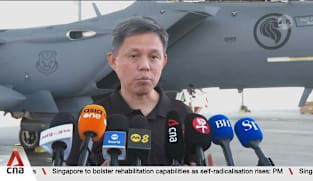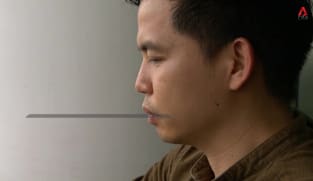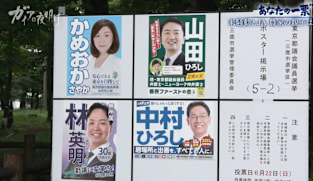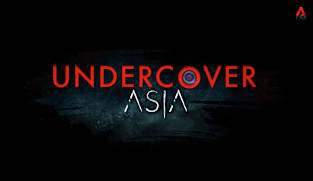Ministerial statement: Chee Hong Tat on East-West Line service disruption
The severe disruption on the East-West MRT Line that started on Sep 25 affected about half a million passenger journeys each day out of 2.8 million daily train-based journeys, causing significant inconvenience to commuters. It also resulted in severe damage to the rail infrastructure which required extensive repairs over more than five days. Transport Minister Chee Hong Tat, who detailed the sequence of events and responses in a ministerial statement in Parliament on Tuesday (Oct 15), extended “sincere apologies once again to all affected commuters”. He told the House that the Land Transport Authority (LTA) will conduct a thorough investigation to ascertain what happened and identify areas of improvement. LTA will be supported by an expert advisory panel chaired by a former head of train systems for the London Underground, with five other local and overseas experts. The Ministry of Transport’s safety investigation bureau will also be conducting an independent safety investigation. Mr Chee said the investigations are expected to be completed in the next few months and the findings will be released publicly. LTA will mete out penalties if the investigations reveal lapses, he added. For affected commuters, SimplyGo has been processing refunds for those charged for two journeys instead of one. Mr Chee said the mitigation measures across the six days enabled most commuters to continue their journeys. The system was also able to cope throughout the disruption due to the strong efforts by bus operators and staff. LTA will press on with the planned expansion of the rail network over the next decade, he said. It will enhance rail connectivity and resilience, especially in the west and better connect the western region to other parts of Singapore. “We will learn from this episode, remain vigilant and work closely with our tripartite partners to continually improve our public transport system,” he said. “This incident was a setback, but it will not shake our determination to do better and to make our MRT a safe, reliable and resilient rail system that Singaporeans can be proud of,” said Mr Chee. Responding to a question about whether this incident and service levels can be taken into consideration in the Public Transport Council’s (PTC) fare review exercise, Mr Chee said public transport service levels and disruptions should be separate from how fares are set. He pointed out that the PTC previously studied whether fare reviews should be linked to service levels and disruptions but decided not to adopt this approach because there are other measures in place to ensure that service standards are met. For service disruptions, LTA will establish causes and accountability, then mete out penalties where necessary. When operators do not meet reliability targets, they do not receive payments under the Government's incentive schemes. The annual fare review exercise ensures that fares keep pace with changes in operating costs, said Mr Chee. “Fares are collected for the entire public transport system, including buses and trains, to ensure that the public transport system remains financially sustainable. If our fares are not adjusted to reflect rising operating costs, the persistent shortfall would have a chronic impact on service quality and reliability over time. Or if we want to continue topping-up the shortfall via Government subsidies, it means that taxpayers would have to foot a higher bill,” said Mr Chee.
The severe disruption on the East-West MRT Line that started on Sep 25 affected about half a million passenger journeys each day out of 2.8 million daily train-based journeys, causing significant inconvenience to commuters. It also resulted in severe damage to the rail infrastructure which required extensive repairs over more than five days. Transport Minister Chee Hong Tat, who detailed the sequence of events and responses in a ministerial statement in Parliament on Tuesday (Oct 15), extended “sincere apologies once again to all affected commuters”. He told the House that the Land Transport Authority (LTA) will conduct a thorough investigation to ascertain what happened and identify areas of improvement. LTA will be supported by an expert advisory panel chaired by a former head of train systems for the London Underground, with five other local and overseas experts. The Ministry of Transport’s safety investigation bureau will also be conducting an independent safety investigation. Mr Chee said the investigations are expected to be completed in the next few months and the findings will be released publicly. LTA will mete out penalties if the investigations reveal lapses, he added. For affected commuters, SimplyGo has been processing refunds for those charged for two journeys instead of one. Mr Chee said the mitigation measures across the six days enabled most commuters to continue their journeys. The system was also able to cope throughout the disruption due to the strong efforts by bus operators and staff. LTA will press on with the planned expansion of the rail network over the next decade, he said. It will enhance rail connectivity and resilience, especially in the west and better connect the western region to other parts of Singapore. “We will learn from this episode, remain vigilant and work closely with our tripartite partners to continually improve our public transport system,” he said. “This incident was a setback, but it will not shake our determination to do better and to make our MRT a safe, reliable and resilient rail system that Singaporeans can be proud of,” said Mr Chee. Responding to a question about whether this incident and service levels can be taken into consideration in the Public Transport Council’s (PTC) fare review exercise, Mr Chee said public transport service levels and disruptions should be separate from how fares are set. He pointed out that the PTC previously studied whether fare reviews should be linked to service levels and disruptions but decided not to adopt this approach because there are other measures in place to ensure that service standards are met. For service disruptions, LTA will establish causes and accountability, then mete out penalties where necessary. When operators do not meet reliability targets, they do not receive payments under the Government's incentive schemes. The annual fare review exercise ensures that fares keep pace with changes in operating costs, said Mr Chee. “Fares are collected for the entire public transport system, including buses and trains, to ensure that the public transport system remains financially sustainable. If our fares are not adjusted to reflect rising operating costs, the persistent shortfall would have a chronic impact on service quality and reliability over time. Or if we want to continue topping-up the shortfall via Government subsidies, it means that taxpayers would have to foot a higher bill,” said Mr Chee.



















